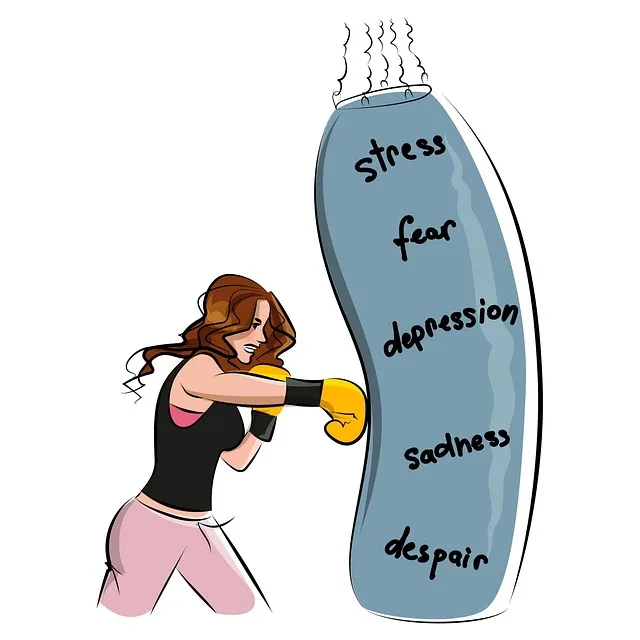Mental wellness programs, as reviewed by Littleton Kaiser Permanente, offer holistic approaches to emotional, psychological, and social well-being through therapy, support groups, education, and mindfulness. Evaluating these programs using surveys, interviews, and data analysis is essential for understanding their effectiveness. Strategies like empathy building, public awareness campaigns, and inner strength development create positive change. The Littleton Kaiser Permanente reviews highlight a commitment to cultural competency and continuous improvement in behavioral health services, focusing on access, client satisfaction, and clinical outcomes. Their approach combines quantitative and qualitative methods with community outreach, emphasizing cognitive-behavioral aspects for proactive mental health management. Regular evaluations refine service delivery models, ensuring tailored interventions to reduce mental illness stigma and adapt to community needs.
Mental wellness programs have become integral to modern healthcare, with organizations like Littleton Kaiser Permanente leading the way in behavioral health services. Evaluating these programs is crucial for understanding their impact and identifying areas for improvement. This article explores various evaluation methods used in mental wellness programs, drawing insights from Littleton Kaiser Permanente’s comprehensive reviews. We’ll delve into key components, best practices, and strategies to enhance behavioral health services through effective assessment.
- Understanding Mental Wellness Programs and Their Importance
- The Role of Evaluative Methods in Behavioral Health Services
- Reviews by Littleton Kaiser Permanente: A Case Study
- Key Components of Effective Mental Wellness Program Evaluation
- Best Practices for Assessing and Improving Behavioral Health Services
Understanding Mental Wellness Programs and Their Importance

Mental wellness programs are designed to promote and maintain an individual’s emotional, psychological, and social well-being. These initiatives are crucial in fostering resilience, self-care, and positive mental health outcomes. Organizations like Littleton Kaiser Permanente behavioral health services reviews highlight the growing recognition of the importance of such programs. Their comprehensive approaches often include therapy, support groups, education, and activities that encourage mindfulness and emotional expression.
Evaluating these programs is essential to understanding their effectiveness and impact. Through various methods, such as surveys, interviews, and data analysis, researchers can assess the success of initiatives aimed at improving mental wellness. By focusing on strategies like empathy building and public awareness campaigns development, as well as promoting inner strength development, organizations can create lasting positive change in their communities.
The Role of Evaluative Methods in Behavioral Health Services

The evaluation of mental wellness programs is a cornerstone of effective behavioral health services, such as those provided by Littleton Kaiser Permanente. These methods play a pivotal role in understanding the impact and quality of interventions aimed at improving patient outcomes, including mood management and self-esteem improvement. Through rigorous assessment tools and strategies, healthcare providers can gain valuable insights into what works best for different individuals and populations, ensuring tailored and culturally competent care.
Litttleton Kaiser Permanente behavioral health services reviews are a testament to this approach. By employing diverse evaluative methods, the organization assesses not only the clinical effectiveness of treatments but also their cultural adaptability. This includes evaluating the extent to which services address the unique needs and perspectives of various patient groups, thereby enhancing overall healthcare provider cultural competency training. Such evaluations enable continuous improvement, ensuring that programs remain responsive to evolving mental health challenges and community needs.
Reviews by Littleton Kaiser Permanente: A Case Study

The Littleton Kaiser Permanente behavioral health services reviews offer a compelling case study for evaluating mental wellness programs. These reviews meticulously assess various aspects of the program, including access to care, client satisfaction, and clinical outcomes. By analyzing feedback from both clients and healthcare providers, the evaluations provide insights into the effectiveness of different interventions and support strategies.
The case study highlights successful implementations such as stress reduction methods and confidence-boosting workshops, which have positively impacted individuals dealing with mental illness. Additionally, it underscores the program’s commitment to Mental Illness Stigma Reduction Efforts, reflecting a holistic approach that addresses not just symptoms but also societal perceptions. These reviews serve as a powerful tool for continuous improvement, ensuring that behavioral health services remain tailored to meet the evolving needs of the community.
Key Components of Effective Mental Wellness Program Evaluation

Evaluating mental wellness programs is a multifaceted process that involves several key components to ensure their effectiveness and impact on participants’ lives. One essential aspect is the integration of diverse evaluation methods tailored to the program’s unique goals. For instance, at Littleton Kaiser Permanente behavioral health services, reviews often include both quantitative and qualitative assessments. Quantitative measures, such as surveys and data analysis, help track progress and identify trends among a large group of beneficiaries, providing tangible metrics for success.
Qualitative evaluations, on the other hand, offer deeper insights through methods like interviews and focus groups. These techniques allow participants to share their personal experiences, offering valuable feedback on program usability, relevance, and overall satisfaction. Incorporating community outreach program implementation strategies and organizing stress management workshops can further enhance these evaluations by engaging beneficiaries directly and promoting open dialogue about mental wellness practices. Mind Over Matter principles can also guide the evaluation process, emphasizing cognitive-behavioral aspects that empower individuals to manage their mental health proactively.
Best Practices for Assessing and Improving Behavioral Health Services

Evaluating behavioral health services is an iterative process that leverages best practices to enhance care delivery and outcomes. At Littleton Kaiser Permanente, behavioral health services reviews focus on holistic assessment methods, incorporating patient feedback and clinical outcomes measurement. This collaborative approach not only identifies areas for improvement but also fosters continuous quality improvement. By integrating Emotional Healing Processes within these evaluations, the program ensures a comprehensive understanding of client experiences and needs, enabling tailored interventions that address Mental Illness Stigma Reduction Efforts and promote public Awareness Campaigns Development.
Utilizing data-driven insights from reviews allows healthcare providers to refine service delivery models. This strategic approach not only improves access to quality behavioral health care but also enhances patient satisfaction and clinical outcomes. Through regular evaluations, Littleton Kaiser Permanente can adapt its services to meet the evolving needs of its community, ensuring that behavioral health interventions remain effective and relevant in addressing mental wellness challenges.
Mental wellness program evaluation methods are indispensable tools for improving behavioral health services, as demonstrated by Littleton Kaiser Permanente’s successful case study. By incorporating key components such as comprehensive data collection, stakeholder involvement, and evidence-based practices, organizations can ensure their programs effectively address mental health needs. Adhering to best practices in assessment and continuous improvement enables the delivery of high-quality care that fosters positive outcomes for individuals seeking behavioral health services. The evaluation process itself becomes a dynamic element within these programs, allowing for adaptability and growth over time.






